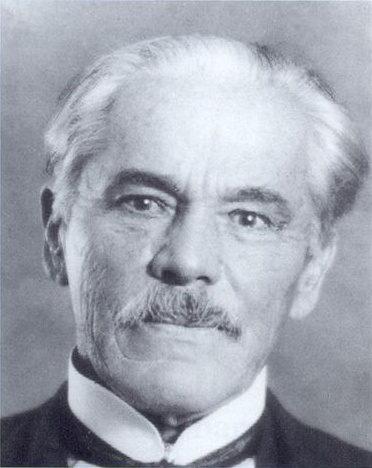- Aleš Hrdlička
Infobox Person
name = Aleš Hrdlička

image_size = 250px
caption =
birth_date = Birth date|1869|03|29|df=yes
birth_place =
death_date = Death date and age|1943|09|05|1869|03|29|df=yes
death_place =Washington, D.C. USA
education = Eclectic Medical College New York
occupation =Anthropologist
spouse =
parents = ? Hrdlička, Karolina Hrdličková
children =Aleš Hrdlička or Ales Hrdlicka (
March 29 ,1869 –April 5 ,1943 ) was a Czech anthropologist who lived in theUnited States after his family had left there in 1881. He was born inHumpolec ,Bohemia (today in theCzech Republic ) and given a baptismal name "Alois", which he later changed into a more patriotic form "Aleš".His mother, Karolina Hrdličková, educated her gifted child herself; his skills and knowledge made it possible to skip the primary level of school. The family emigrated in the U.S. in 1881, when he was only 13. After arrival, the promised job brought only a disappointment to his father who started working in a cigar factory along with teenage Alois to earn living for the family with 6 other children. Young Hrdlička attended evening courses to improve his English, and at the age of 18, he decided to study medicine since he had suffered from tuberculosis and experienced the treatment difficulties of those times. In 1889, Hrdlička started studies at Eclectic Medical College and then continued at Homeopatic College in New York. To finish his medical studies, Hrdlička sat for exams in Baltimore in 1894. At first, he worked in the Middletown asylum for mentally affected where he learnt of anthropometry. In 1896, Hrdlička left for
Paris , where he started to work as an anthropologist with other experts of then establishing field of science.Between 1898 and 1903, during his scientific travel across America, Hrdlicka became the first scientist to spot and document the theory of human colonization of the American continent from east Asia only some 15,000 years ago. He argued that the Indians migrated across the
Bering Strait from Asia, supporting this theory with detailed field research of skeletal remains as well as studies of the people in Mongolia, Tibet, Siberia, Alaska, and Aleutian Islands. The findings backed up the argument which later involved into the theory of global origin of human species that was awarded by the Thomas Henry Huxley Award in 1927.Ales Hrdlicka founded and became the first
curator of physical anthropology of the U.S. National Museum, now theSmithsonian Institution National Museum of Natural History in 1903. He was the founder of the "American Journal of Physical Anthropology".He always sponsored his fellow expatriates and also donated the institution of anthropology in Prague, which was founded in 1930 by his co-explorer Jindřich Matiegka, in his natal country (the institution later took his name).
External links
* [http://www.mnsu.edu/emuseum/information/biography/fghij/hrdlicka_ales.html EMuseum short biography] Minnesota State University
* [http://www.physanth.org/annmeet/prizes/hrdlicka.html Biography of Ales Hrdlicka] at American Journal of Physical Anthropology
Wikimedia Foundation. 2010.
